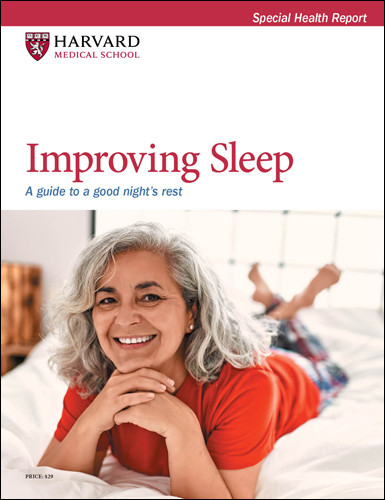Does poor sleep diminish the cognitive benefits of exercise?
News briefs
- Reviewed by Anthony L. Komaroff, MD, Editor in Chief, Harvard Health Letter; Editorial Advisory Board Member, Harvard Health Publishing

Getting at least 150 minutes of exercise each week (such as brisk walking) is crucial to keeping your memory and thinking skills sharp. Exercise promotes the birth of new brain cells and increases the production of enzymes that break down amyloid proteins associated with dementia. Sleep also plays a role in cognitive health, flushing those amyloid proteins out of the brain. The right amount of sleep is so important that a lack of Z's may sabotage the cognitive perks of exercise, according to a study published July 2023 in The Lancet Healthy Longevity. Researchers evaluated the periodic memory test results and self-reported sleep and exercise habits of almost 9,000 dementia-free people (ages 50 and older) who were followed over 10 years. Among people who started the study at age 50 or 60 and reported the highest rates of exercise, those who said they got less than six hours of sleep per night had faster rates of cognitive decline than those who said they got six to eight hours of sleep per night. For people who started the study at age 70 and reported high rates of exercise, the amount of sleep they got didn't seem to affect their rate of cognitive decline. The study was observational and doesn't prove conclusively that poor sleep quashes the brain benefits of exercise.
Image: © TheGoodBrigade/Getty Images
About the Author

Heidi Godman, Executive Editor, Harvard Health Letter
About the Reviewer

Anthony L. Komaroff, MD, Editor in Chief, Harvard Health Letter; Editorial Advisory Board Member, Harvard Health Publishing
Disclaimer:
As a service to our readers, Harvard Health Publishing provides access to our library of archived content. Please note the date of last review or update on all articles.
No content on this site, regardless of date, should ever be used as a substitute for direct medical advice from your doctor or other qualified clinician.
















